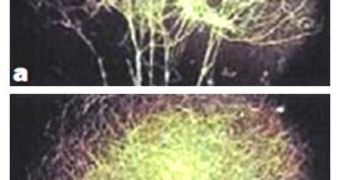More than four decades ago, the work a researcher tried to get published seemed so far-fetched that scientific journals turned her down. The paper was focused on how the estrogen affects the brain, but at the time, the scientific community was simply to accept this idea, that went against the “dogma” of the time. Now, all these years later, the science that Dominique Toran-Allerand conducted is considered to be pioneering and groundbreaking by the vast majority of scientists in her field.
“There is a lot of dogma in science. When you’re challenging dogma, it makes your work more difficult to prove,” she explains, talking about the first rejection of one of her first papers, which came from the Journal of Brain Research. Toran-Allerand, today 75, is based at the Columbia University College of Physicians and Surgeons, where she is a respected professor of pathology and cell biology in obstetrics and gynecology. She continues to study the newly-recognized correlations and inter-dependency between the brain and the hormone estrogen.
Her current research is being conducted in collaboration with investigators from the University of North Texas and is sponsored with grant money from the US National Institutes of Health (NIH). One of the reasons why her earliest works were considered to be “unorthodox” is the fact that, back in 1973, the field of neuroanatomy was barely emerging. Many had preconceived ideas as to what needed to be discovered, without actually taking the time to look at the evidence that experiments produced.
“She has continued to shape our understanding of how estrogen affects the brain, making numerous seminal discoveries in the process. Her work is relevant to our understanding of how certain parts of the brain develop, how estrogen influences mood, and how estrogen’s actions may impact the aging and/or diseased brain,” explains University of North Texas Health Science Center assistant dean of biomedical sciences and associate professor, Mehar-van Singh. The expert has been working with Toran-Allerand since he was a postdoctoral fellow, and has since specialized in hormone neurobiology.
“Estrogen is very important for the brain to function normally. That’s hard for people to accept, because it’s true for both males and females. It’s not just a hormone that is important for reproduction; it’s a hormone that’s very important for the well-being of the brain in both [genders],” she says. To this day, her work focuses on little-explored issues related to the production of estrogen in the body, PhysOrg reports.

 14 DAY TRIAL //
14 DAY TRIAL //